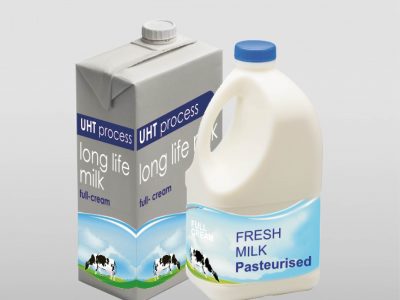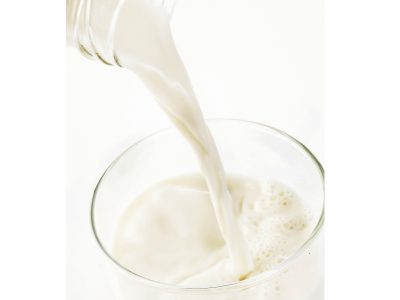Here’s what you should know to choose the best milk option for everyone in your family
Cow’s milk is a versatile and convenient source of important nutrients for the whole family. It contains a unique combination of valuable nutrients, of which some are typically lacking in many South Africans’ diets. These include calcium, potassium and vitamin A. Milk is also an affordable source of good-quality protein, and its overall health benefit stems from more than just the sum of its individual nutrients. What’s more is that milk is ready to be enjoyed just as it is or as a base in other dishes and helps to keep you feeling fuller for longer.

Put healthy options in your basket
It does not matter if you buy fresh, pasteurised milk or long-life milk. It is equally nutritious. However, if you buy powdered milk, make sure that it’s real cow’s milk. Look at your food label and more specifically the ingredients list. The list of ingredients will be short and the first item will always be full-cream or fat-free (cow’s) milk. If not, it’s not real milk.
Don’t be fooled: Coffee creamer is not cow’s milk! Coffee creamer is made from unhealthy plant fats and contains very little protein (0.1%) and no calcium or any of the other important nutrients of milk. Coffee creamer is not a substitute for milk and can never replace milk or formula milk in the diet of children or babies. Take your pick: You’ll get the same unique combination of nutrients and the taste you love whichever milk option you choose!
Your milk choices
The difference between full-cream, low-fat and fat-free milk is the amount of fat per serving, its energy (kJ) value and the vitamin A content. When the fat of milk is removed, the fat-soluble vitamin A is lost. Children, elderly and immune compromised people should therefore rather use full-cream milk, while people with diabetes or who are overweight should use low-fat or fat-free milk.

250 ml
Full-cream milk – ≤8.5g fat and 640kJ
Low-fat milk – ≤3.75g fat and 518kJ
Fat-free milk – ≤1,25g fat and 362kJ
You can also choose to buy fresh (pasteurised) milk or milk that keeps for longer, such as long-life (UHT) or powdered milk. It doesn’t matter which one you choose – each offers you all the goodness of cow’s milk.
Always keep fresh milk in the fridge. Long-life milk can be stored in the cupboard until you need it, but put it in the fridge once it has been opened. Powdered milk is convenient because you can prepare only as much as you need at one time.
Did you know?
- It is best to store your milk in the back of the fridge (not the door) to ensure it stays fresh – even when the power is down.
- Want to use milk later or worried about loadshedding? Simply freeze it in smaller containers, and then let it thaw in the fridge before use. A quick shake once thawed and it’s ready to drink or use in your favourite recipes.
For more information, visit www.rediscoverdairy.co.za or follow rediscoverDAIRY on Facebook.
An initiative by the Consumer Education Project of Milk SA


